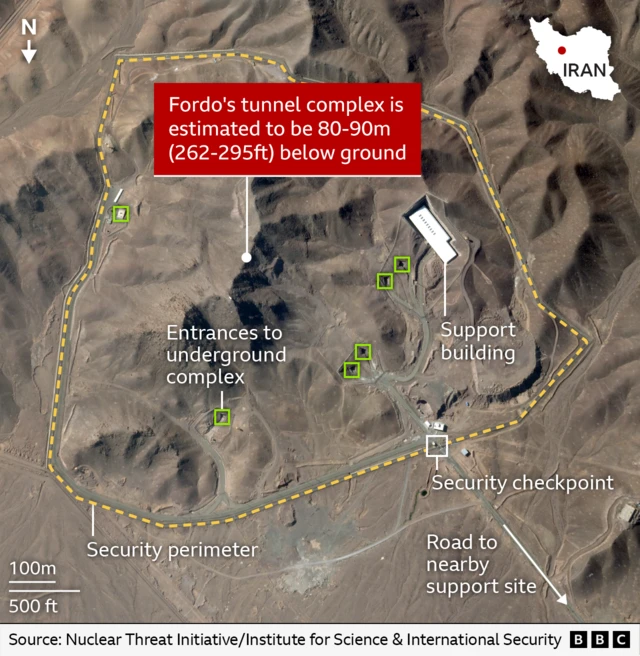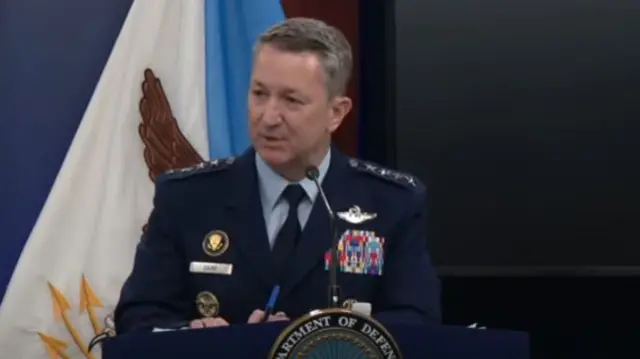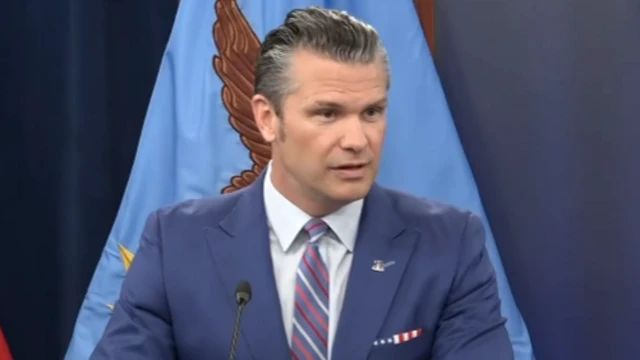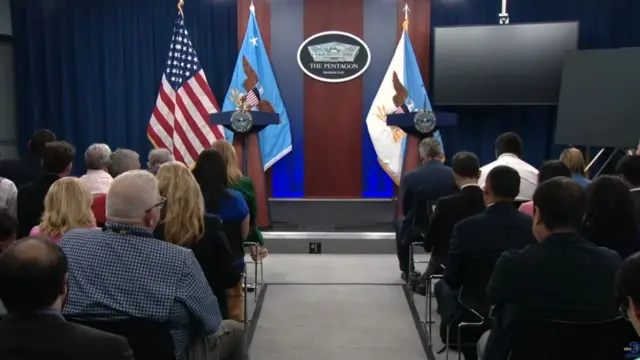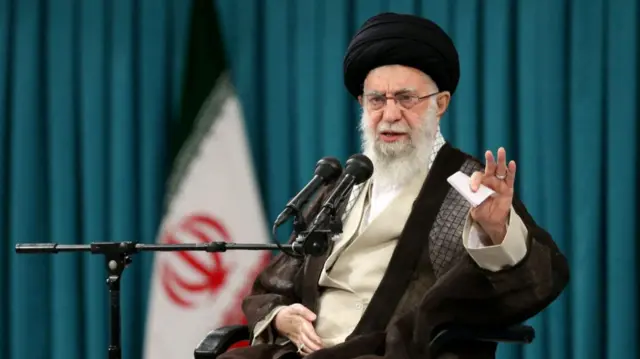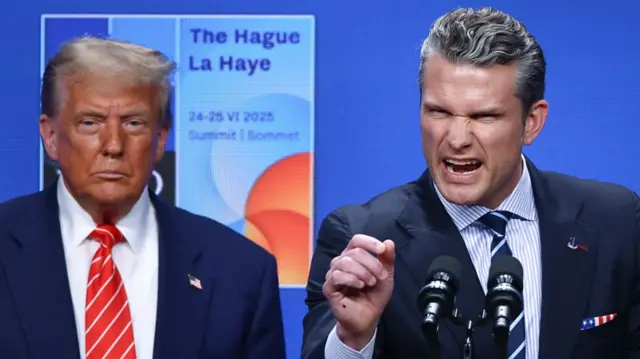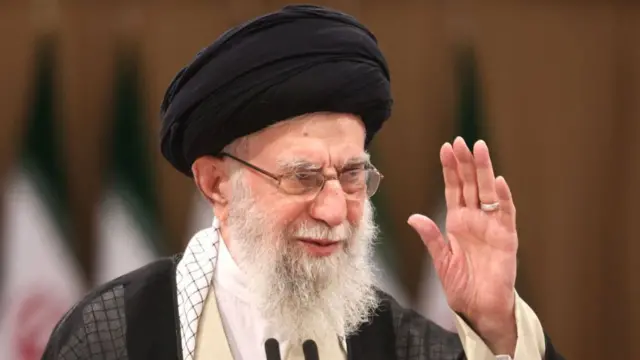General pressed on whether he'd use the word 'obliterated'published at 13:46 BST 26 June
 Nomia Iqbal
Nomia Iqbal
North America correspondent
A little earlier, the chairman showed a video that appears to show the Massive Ordnance Penetrator (MOP) destroying the entrances to the Fordo site - but again nothing definitive so far that the sites have been destroyed to the point where Iran can’t revive its nuclear programme.
When asked by reporters if he’d use the word obliterated - the general wouldn’t confirm.
Hegseth answers, angrily rebuking the press, and saying “[anyone] with eyes and a brain can recognise” the destruction.
